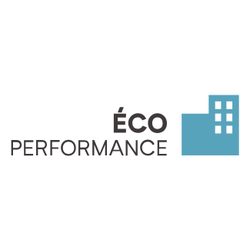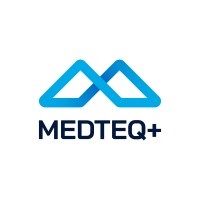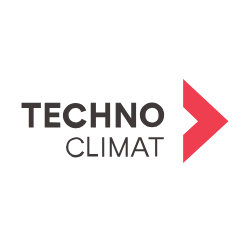
Open
Closing Soon
First Nations Environmental Contaminants Program (FNECP)
Last Update: October 27, 2025
QC, Canada
Funding supports First Nations' environmental health research and risk assessment
Grant and Funding
At a glance
Funding available
Financing goals
Increasing community impact
Develop strategic partnerships
Research and experimental development
See more
Eligible Funding
- No Condition
Timeline
- Unspecified
Eligible candidates
Eligible Industries
- Professional, scientific and technical services
- Administrative and support, waste management and remediation services
- Educational services
- Health care and social assistance
Location
- Quebec
Legal structures
- Non-profit
- Public or Parapublic institution
Annual revenue
- All revenue ranges
Organisation size
- All organization sizes
Audience
- Indigenous Peoples
Non-profit candidates
Sector of operation
- Research
- Other Health Services
- Environment
- Economic, Social and Community Development
Target groups
- Indigenous peoples
- Rural / Remote communities
Revenue structures
- All structures
Scope
- Local
- Regional
- Provincial
- National
Overview
The First Nations Environmental Contaminants Program (FNECP) provides funding to support First Nations communities in identifying, investigating, and addressing the health impacts of environmental contaminants through activities such as community-based research, monitoring, risk assessment, and risk communication. While the maximum funding amount is not specified, eligible initiatives include primary research, knowledge integration, and risk communication projects undertaken in partnership with qualified scientific or academic professionals.
Activities funded
- Community-based research on environmental contaminants and their health impacts.
- Monitoring of environmental hazards in First Nations communities.
- Assessment of risks related to exposure to chemical, radiological, or other environmental hazards.
- Communication of risks related to environmental contaminants to community members.
- Integration and sharing of knowledge regarding environmental health and contaminants.
Examples of admissible projects:
$ 16,500
Creating accessible website with online client intake forms
$ 36,000
Implementing digital ticketing system for local performing arts shows
$ 117,000
Upgrading fleet vehicles to hybrid models for food delivery
$ 140,000
Installing rooftop solar panels to decrease facility energy usage
$ 85,000
Purchasing energy-efficient refrigeration units for retail operations
$ 53,000
Launching zero-waste packaging for gourmet granola production
Eligibility
- The applicant must be a First Nations community or organization recognized under the Indian Act.
- Eligible applicants include First Nations communities on reserve and organizations south of the 60° parallel in Alberta, Manitoba, Saskatchewan, Ontario, Quebec, or Atlantic Canada.
- Bands, districts, councils, tribal councils and associations, governments of self-governing First Nations communities and regions, and non-government or voluntary associations (including non-profit corporations working on behalf of or with a First Nations community) are eligible.
- Projects must involve partnership with qualified scientific or academic professionals as specified for the project type.
Who is eligible?
- First Nations communities on reserve (south of the 60° parallel: Alberta, Manitoba, Saskatchewan, Ontario, Quebec, Atlantic Canada)
- First Nations bands, districts, and councils
- First Nations tribal councils and associations
- Governments of self-governing First Nations communities and regions
- First Nations non-government and voluntary associations and organizations, including non-profit corporations working on behalf of or in partnership with a First Nations community
Who is not eligible
- Companies or organizations that are not recognized First Nations communities or First Nations organizations under the Indian Act.
- Organizations based in British Columbia (these should apply through the First Nations Health Authority Environmental Contaminants Program instead).
- For-profit businesses not working on behalf of or in partnership with a First Nations community.
- Entities without a partnership with academically qualified scientists as required for project types.
Eligible geographic areas
- First Nations communities on reserve and First Nations organizations south of the 60° parallel in Alberta
- First Nations communities on reserve and First Nations organizations south of the 60° parallel in Manitoba
- First Nations communities on reserve and First Nations organizations south of the 60° parallel in Saskatchewan
- First Nations communities on reserve and First Nations organizations south of the 60° parallel in Ontario
- First Nations communities on reserve and First Nations organizations south of the 60° parallel in Quebec
- First Nations communities on reserve and First Nations organizations south of the 60° parallel in Atlantic Canada
Selection criteria
- Inclusion of scientifically qualified partners appropriate to the project type (e.g., academically trained scientists for primary research; relevant degrees and expertise for knowledge integration and risk communication projects).
- Clear identification, justification, and articulation of the environmental health risk associated with contaminants included in the proposal.
How to apply
1
Confirm eligibility requirements
- Review eligibility criteria for First Nations communities under the Indian Act
- Ensure your community or organization is located south of the 60° parallel in a qualifying province
- Confirm project and partnership requirements are met
2
Request application documents
- Contact program staff by email to request the Call for proposals document
- Obtain the application guide and proposal template
3
Consult with program staff
- Discuss your project ideas with program staff for advice
- Review guidance on proposal requirements and meeting eligibility conditions
4
Prepare project proposal
- Complete your proposal using the official template
- Identify required academic or scientific partners as applicable
- Ensure the project addresses relevant environmental contaminants and associated health risks
5
Get feedback and revise proposal
- Submit your draft proposal for feedback to program staff
- Revise your proposal based on suggestions and feedback received
6
Submit final application
- Submit the finalized proposal by September 22, 2025 at 11:59 pm Mountain Time
7
Await funding decision
- Wait for the funding decision from the First Nations Environmental Contaminants Program
Additional information
- The deadline to submit a proposal is September 22, 2025, at 11:59 pm Mountain time.
- The program accepts proposals for any environmental contaminants, provided the associated human health risk is clearly justified in the application.
- The scientific or academic partners required must be explicitly identified in the proposal.
- Program staff are available to review and provide feedback on draft proposals before final submission.
Contacts
fnecp-plcepn@sac-isc.gc.ca
QC, Canada
Apply to this program
Frequently Asked Questions about the First Nations Environmental Contaminants Program (FNECP) Program
Here are answers to the most common questions about the First Nations Environmental Contaminants Program (FNECP). This section explains what the program is, how much funding is available, eligibility requirements, application deadlines, and other important details to help you determine if this grant is right for your business.
What is the First Nations Environmental Contaminants Program (FNECP)?
Who is eligible for the First Nations Environmental Contaminants Program (FNECP) program?
What expenses are eligible under First Nations Environmental Contaminants Program (FNECP)?
Who can I contact for more information about the First Nations Environmental Contaminants Program (FNECP)?
Where is the First Nations Environmental Contaminants Program (FNECP) available?
Is the First Nations Environmental Contaminants Program (FNECP) a grant, loan, or tax credit?
Who are the financial supporters of the First Nations Environmental Contaminants Program (FNECP)?
Apply to this program
More programs like this

Tax CreditsOpen
Research, Innovation and Commercialization Tax Credit (CRIC)
Gouvernement du QuébecRefundable tax credit for Quebec business R&D and precommercialization

Grant and FundingOpen
ÉcoPerformance — Recommissioning of building mechanical systems
Gouvernement du QuébecFunding to optimize the operation of building mechanical systems

Grant and FundingClosed
NovaScience Program - Support for projects in scientific culture and innovation
Gouvernement du QuébecNovaScience promotes scientific culture and innovation development

Grant and FundingClosed
Community Organization Support Program (PSOC)
Department of Health and Human ServicesSupports Quebec community organizations in health and social services

Tax CreditsOpen
Tax holiday for a new business created to commercialize intellectual property
Ministère de l'économie, de l'innovation et de l'énergie du Québec (MEIE)Tax credit for commercialization of intellectual property (IP) in Quebec

Grant and FundingOpen
ÉcoPerformance — Standard Analysis Stream
Gouvernement du QuébecSupports feasibility analyses to reduce greenhouse gas emissions

Grant and FundingOpening Soon
MEDTEQ+ — AVISÉ program
Consortium de recherche et d’innovation en technologies médicales du QuébecFunding for validation and evaluation of innovative health technologies

Grant and FundingOpen
Innovative Projects Program
Hydro-QuébecSupports innovative, energy-efficient projects for multi-building developments

Grant and FundingOpen
Technoclimat
Environnement Québec (MELCC)Financial assistance for the demonstration of new technologies in Quebec

Grant and FundingClosed
NovaScience Program — Support for employment in research and innovation
Gouvernement du QuébecNovaScience supports innovation job integration in Quebec businesses
Sign up to our platform to access the First Nations Environmental Contaminants Program (FNECP) information sheet for free
Get access to 4,000+ programs, practical guides, personalized alerts, and an AI assistant to support your grant applications.